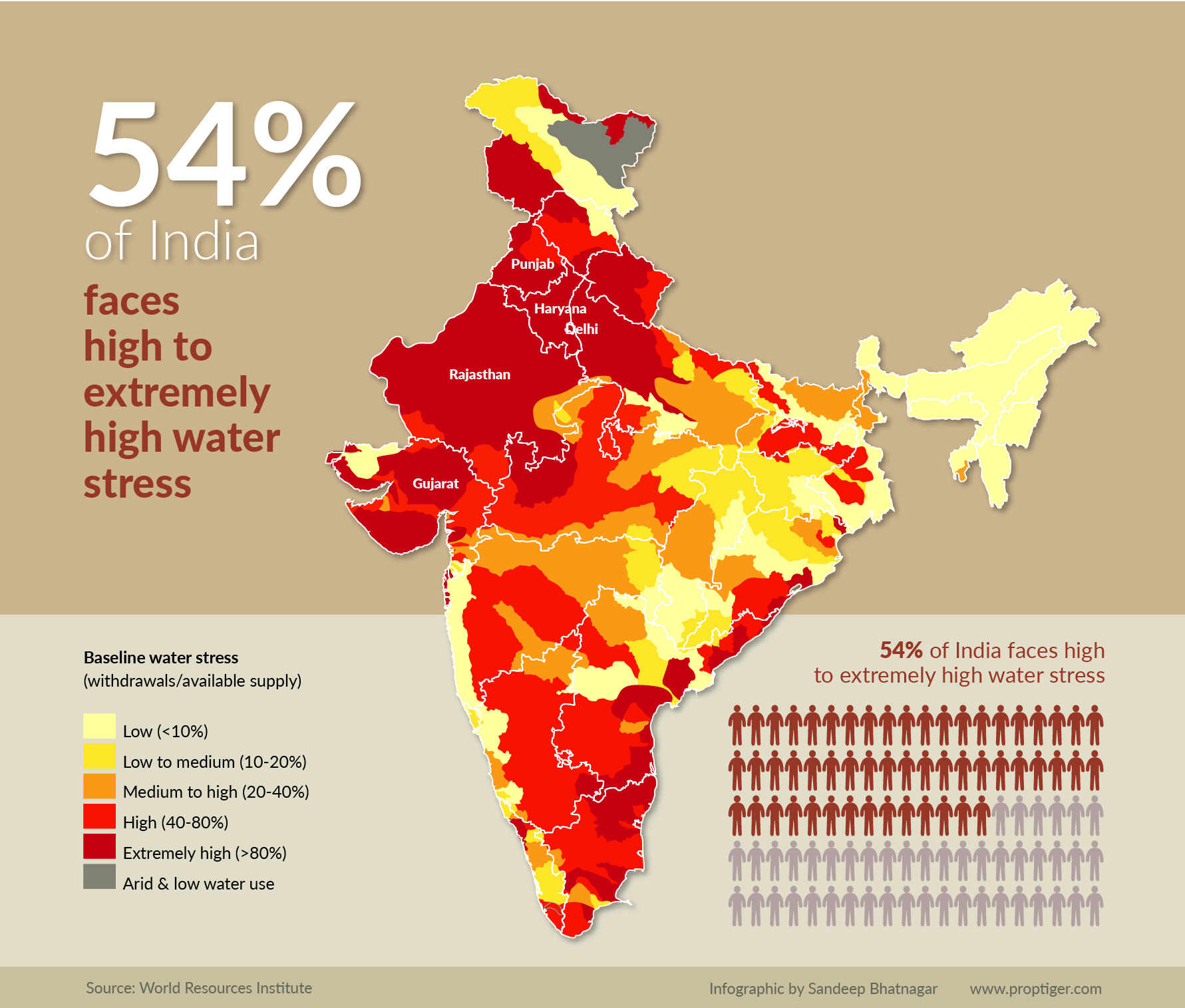Why Chennai Water Crisis is a Man-Made Disaster and what needs to be done to save Indian cities from rapidly depleting water sources?
What is Chennai going through?
 |
| Source : The Financial Express |
 |
| Chennai's Puzhal Lake Satellite Image, Souce: Deccan Chronicle |
Though the city is located on a floodplain and theoretically should have enough water to sustain its population, but rapid urbanisation, road building and concrete surfaces does not let the rain water percolate into the ground, failing to replenish the aquifers under the city. This highlights the blurred lines between development and sustainable development. The government's indifference towards sustainability adds to it.
What lies ahead?
 |
| Source: Prop Tiger |
The Green Revolution which is often regarded as one of the most remarkable efforts to boost agriculture in North-Western India has also proved to be an unsustainable model. It accelerated groundwater depletion as farmers recklessly used tubewells to draw water. North-Western states must focus on less water intensive crops and North-Eastern states which receive higher rainfall must grow more water intensive crops. Long-term planning and water harvesting must be prioritised. With summers growing hotter and temperatures rising, the stress on groundwater and reservoirs is set to grow, exposing Indian cities to water shortages and droughts. Climate Change affects rainfall patterns but irrational water management is what is making Indian cities more prone to drought and water depletion. We still have time, Governments need to wake up, citizens need to act, institutions need to play their role to prevent our taps from running dry.
What do you think who is responsible for Chennai's plight? Us or just Climate Change?

Comments
Post a Comment